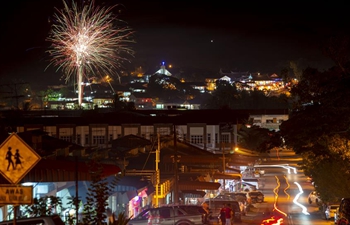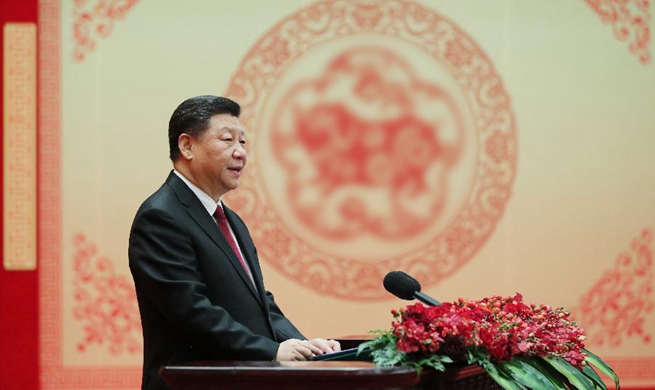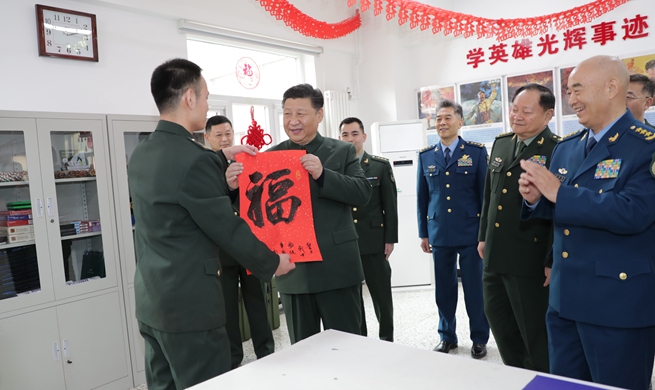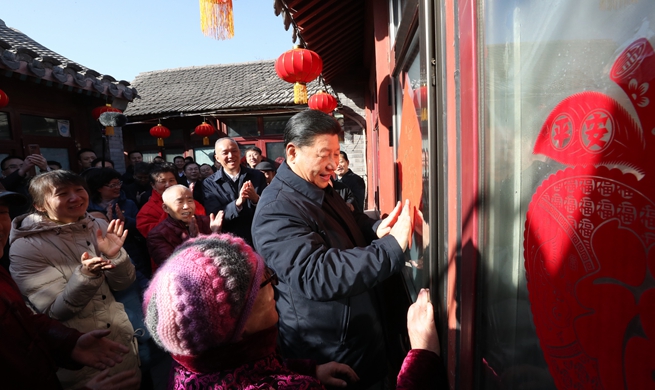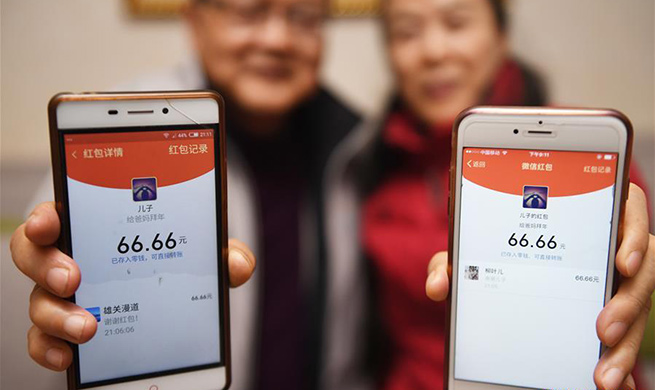MANILA, Feb. 5 (Xinhua) -- Philippine headline inflation decelerated further to 4.4 percent year-on-year in January 2019 from 5.1 percent in December 2018, the Philippine central bank said on Tuesday.
The latest inflation reading was above the government's inflation target range of 3.0 percent plus or minus 1.0 percentage point for the year, the Bangko Sentral ng Pilipinas (BSP) said in a statement.
Nevertheless, the BSP said the core inflation which excludes selected volatile food and energy items to measure underlying price pressures has also slowed down to 4.4 percent in January from 4.7 percent in the previous month.
The month-on-month seasonally-adjusted headline inflation rose to 0.1 percent in January 2019 from -0.4 percent in December 2018, the BSP said.
The BSP said food inflation continued to ease in January 2019, reflecting improved domestic food supply conditions.
In particular, it said rice inflation also moderated for the third consecutive month due to the arrival of rice imports and increased supply from the recent harvest.
At the same time, the BSP said non-food inflation decelerated as a result of slower price increases of clothing and a year-on-year decline in inflation for the operation of personal transport equipment. Electricity rates also decreased during the month owing to lower generation charges.
"These changes offset the faster price increases in furnishings, household equipment, and routine house maintenance," the statement read.
The BSP said the latest inflation outturn continues to support the BSP's prevailing assessment that price pressures have started to dissipate with average inflation expected to fall within the government's 2 to 4 percent target range for both 2019 and 2020.
The inflation release will be taken into consideration along with other incoming data during the Monetary Board's upcoming monetary policy meeting in order to ensure that the monetary policy stance remains consistent with the BSP's primary mandate of price stability, the BSP said.
"The easing of headline inflation was widely felt across all regions," according to a joint statement from the economic team of the Duterte government.
In particular, they said that inflation in Metro Manila and other areas slowed to 4.6 and 4.4 percent, respectively. Inflation in the Autonomous Region in Muslim Mindanao (ARMM) in Southern Philippines was the highest at 6.1 percent.
Therefore, the team expressed confidence that inflation will further ease in the near term and settle at 3.2 percent and 3.0 percent in 2019 and 2020, respectively, as seen by the BSP.


